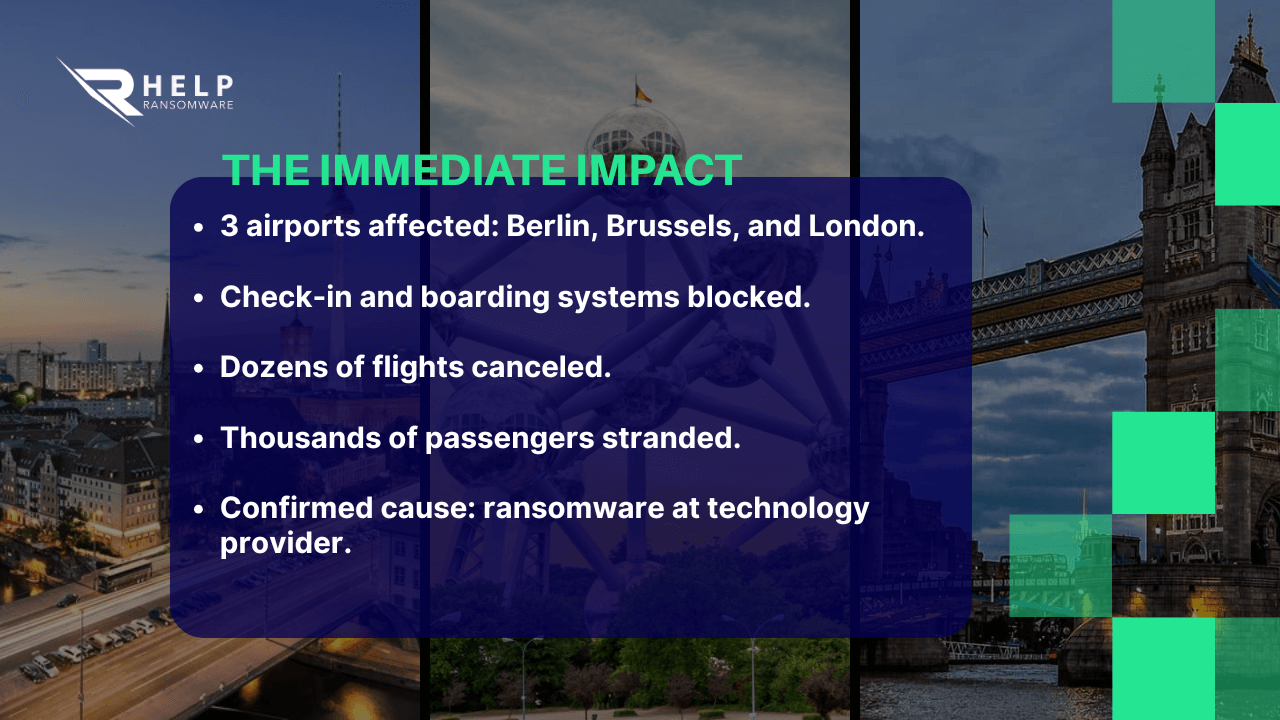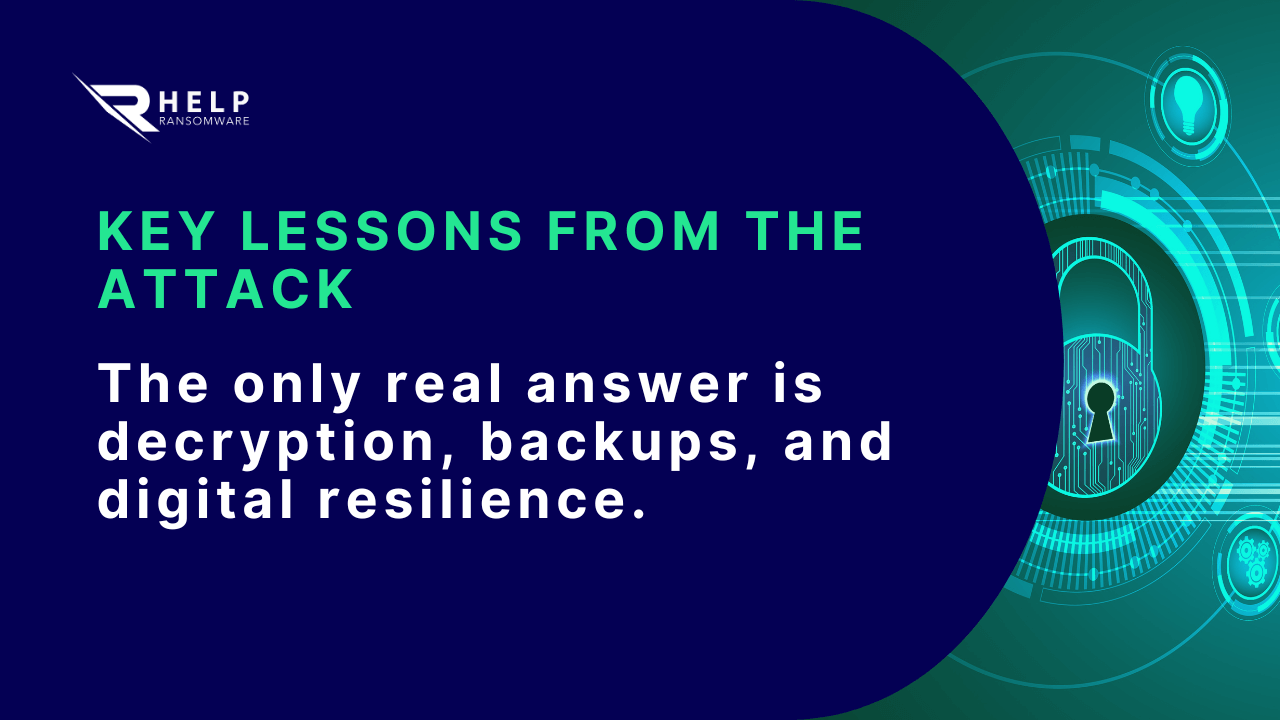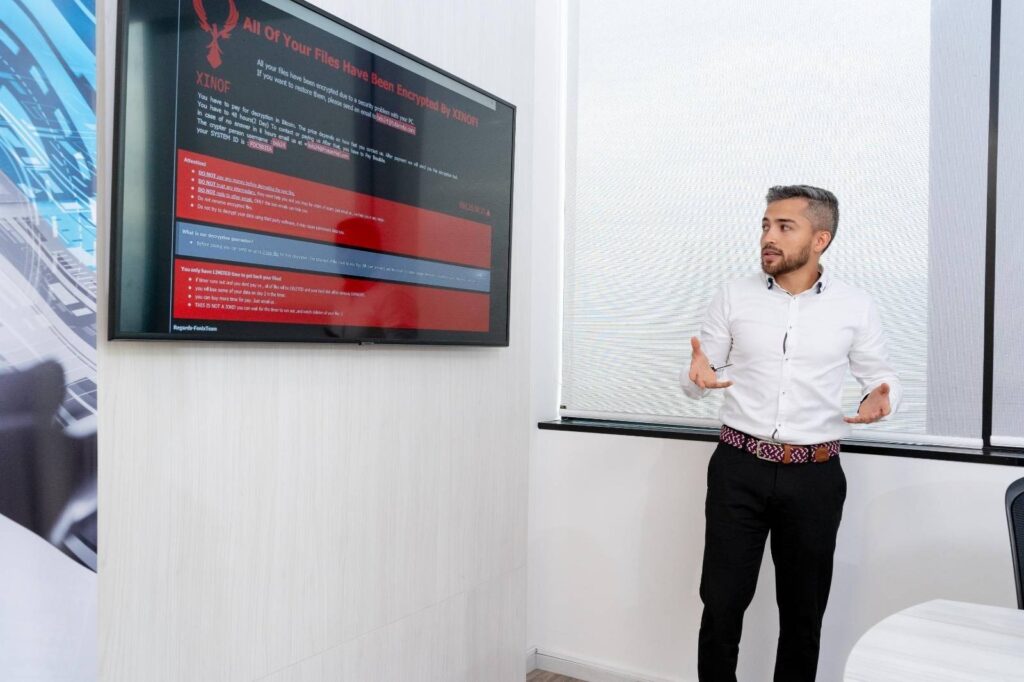An attack that paralyzed thousands of passengers
Berlin-Brandenburg, Brussels and London Heathrow airports were hit by a ransomware attack that took down check-in, boarding, and baggage handling systems.
For hours, processes had to be carried out manually, causing delays, cancellations, and long lines that affected tens of thousands of passengers. This wasn’t a direct attack on airports, but rather on a critical software provider, demonstrating how a single vulnerable link can trigger a large-scale domino effect.

How the attack spread
The incident originated at a technology provider that serves several European airports. A successful intrusion into its servers compromised the software used for check-in, ticketing, and baggage handling.
This type of attack reflects an increasingly common reality: an organization’s security depends not only on its own defenses, but also on those of third parties. When one provider fails, the entire chain falters.
This is where the Ransomware protection and digital continuity plans come into play. Having backups isn’t enough; resilience, redundancy, and well-tested contingency plans are required.

Immediate Ransomware Help
Don’t let ransomware hold your business hostage. Our experts are ready to recover your data and secure your systems.
A growing risk for air transport
Ransomware is no longer limited to stealing information or demanding ransoms. By 2025, it seeks to disrupt essential services to maximize its impact and pressure.
Air transport is particularly attractive to cybercriminals for several reasons:
- Its transnational character.
- The large amount of sensitive passenger data.
- The absolute dependence on computer systems to operate normally.
As we showed in our analysis on Ransomware on airlines, an attack not only affects airlines, but also passengers, authorities, and the entire economy associated with tourism and logistics. The European Union Agency for Cybersecurity (ENISA) had already warned in its Transport Threat Landscape report that ransomware is one of the main threats to aviation. The incidents in Berlin, Brussels, and London confirm these predictions and demonstrate the urgent need to strengthen security in the sector.

What measures should airports take?
The complexity of the airport ecosystem, with multiple vendors, interconnected systems, and high technological dependence, demands a proactive and coordinated approach.
These are some of the key measures that airports and their technology partners should implement to reduce the risk and minimize the impact of a ransomware attack.
- Constant supplier audits : demand reinforced cybersecurity protocols.
- Technological redundancy : having alternative systems capable of operating in the event of a failure.
- Ransomware solutions with early detection and immediate response capabilities.
- Staff training : Train employees to detect phishing attempts and respond appropriately.
- Communication plans : transparently inform passengers and authorities to reduce uncertainty.

Immediate Ransomware Help
Don’t let ransomware hold your business hostage. Our experts are ready to recover your data and secure your systems.
Legal and reputational consequences
The impact of these types of incidents goes beyond immediate economic losses.
- Regulatory : Airports are subject to strict security regulations for critical infrastructure, so they could face sanctions if a lack of prevention is demonstrated.
- Reputation : Passenger and airline confidence suffers after an episode of visible chaos.
- Legal action : Airlines or travelers could take legal action if negligence in protecting systems is confirmed.
Conclusion
The cyberattack on Berlin, Brussels, and London confirms that ransomware is no longer just a digital problem: it affects the daily lives of millions of people and threatens strategic sectors.
Airports and airlines must consider cybersecurity a top priority, on par with physical security on runways and terminals. Without a comprehensive plan, future incidents will not be a matter of “if,” but rather a matter of when.
At HelpRansomware, we support critical organizations in threat prevention, detection, and response, offering advanced solutions to ensure that no attack can cripple their operations.



